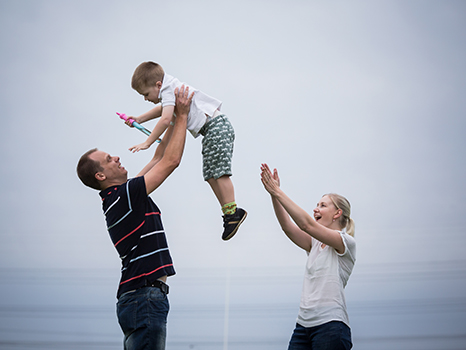Search
Research
Risk assessment and optimization strategies to reduce perioperative respiratory adverse events in Pediatric Anesthesia—Part 2: Anesthesia-related risk and treatment optionsPerioperative respiratory adverse events are the most common cause of critical events in children undergoing anesthesia and surgery. While many risk factors remain unmodifiable, there are numerous anesthetic management decisions which can impact the incidence and impact of these events, especially in at-risk children.
Research
Error traps in pediatric difficult airway managementDifficult airway management in children is associated with significant morbidity. This narrative review on error traps in airway management aims to highlight the common pitfalls and proposes solutions to optimize best practices for pediatric difficult airway management. We have categorized common errors of pediatric difficult airway management into three main error traps.
Research
Perioperative pediatric tonsillectomy analgesia: A single-center review of practice and cost-effectiveness analysisTonsillectomy is one of the most common pediatric surgeries and results in considerable postoperative pain. Insufficiently managed pain is costly, risks physiological and psychological consequences with multi-modal analgesia widely recommended to minimize opioid-based agents. We determined adherence to multi-modal analgesia guidelines and assessed cost-effectiveness. We undertook a cross-sectional cohort study at a tertiary pediatric institution in Perth, Western Australia, retrospectively identifying selected patients undergoing tonsillectomy over two discrete periods of 6-week duration.
Research
Prenatal Exposure to General Anesthesia and Childhood Behavioral DeficitExposure to surgery and anesthesia in early childhood has been found to be associated with an increased risk of behavioral deficits. While the US Food and Drug Administration (FDA) has warned against prenatal exposure to anesthetic drugs, little clinical evidence exists to support this recommendation. This study evaluates the association between prenatal exposure to general anesthesia due to maternal procedures during pregnancy and neuropsychological and behavioral outcome scores at age 10.
Research
What’s inside the box? Or shall we think outside the box?With the deadly and highly transmissible SARS-CoV-2 virus causing the COVID-19 pandemic, there is global concern about the danger of contaminating healthcare workers (HCW), particularly during airway management of infected patients.

The vision of the Perioperative Medicine Team is to make discoveries that will improve children’s perioperative care and lead to global practice change.
Research
Children's Anxiety in the Perioperative Environment: A Qualitative Exploration With Children, Parents and Staff at a Tertiary Paediatric HospitalPerioperative anxiety is a common and distressing aspect of anaesthesia for many children, resulting in management challenges at the time of anaesthesia and potential physical and psychological adverse outcomes. We conducted this qualitative phenomenological study to explore the perspectives of children, parents and staff on perioperative anxiety in our institution. Planned recruitment was 20 each of children who had undergone elective anaesthesia, their parents and staff.
Research
Airborne personal protective equipment availability and preparedness in Australian and New Zealand intensive care units: A point prevalence surveyPersonal protective equipment is essential to protect healthcare workers when exposed to aerosol-generating procedures in patients with airborne respiratory pathogens.
Research
Patient and carer priorities for research and clinical care of children with Down syndromeDown syndrome, the most common genetic disorder, is caused by the presence of all or part of a third copy of chromosome 21. We identified the top 10 patient and carer research priorities for children with Down syndrome.
Research
Current Practices and Priorities of Anesthetists and Consumers for Infants Undergoing Inguinal Hernia SurgeryThere is a paucity of data on the chosen anesthesia management for infant inguinal hernia surgery. We aimed to characterize self-reported anesthetic practice in Australia and New Zealand. We also aimed to identify the outcomes that matter to both anesthetists and to parents and carers.
